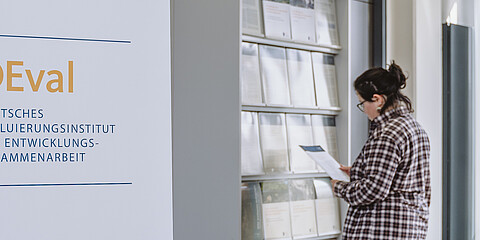Multilateral development cooperation (DC) is essential for achieving the Sustainable Development Goals (SDGs). In this sense, the Federal Ministry for Economic Cooperation and Development (BMZ) strives for strong multilateral development cooperation. However, systematic evidence gaps exist, which is why DEval is evaluating the BMZ's multilateral engagement.
read more →

